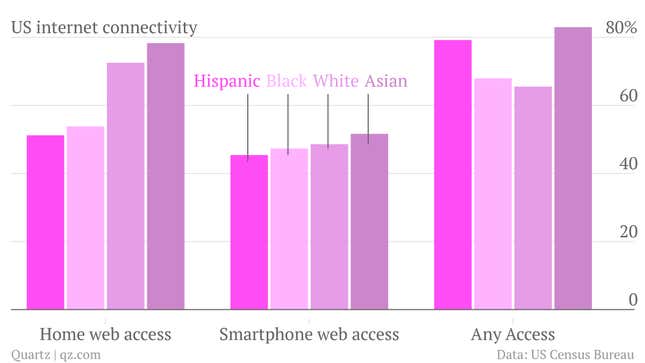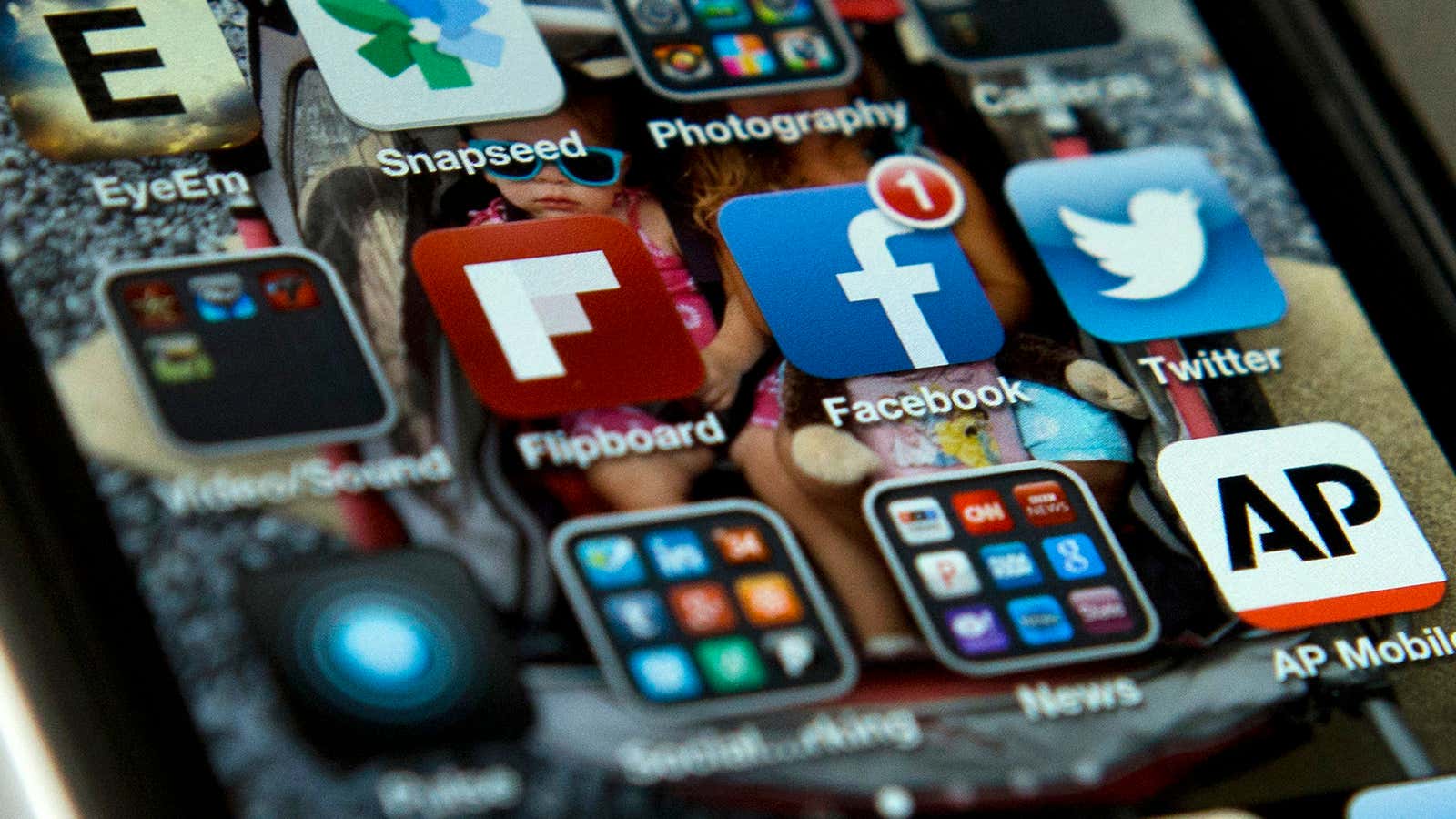Cell phones are expected to bring the next billion internet users on board by 2015, but not all those new users will come from Africa and Asia. Plenty of them are members of late-adopting ethnic groups within the US.
On the 2011 US Census Bureau survey, which was released this week, respondents were asked about their smartphone use for the first time—specifically, whether or not they use their mobile devices to go online. Unsurprisingly, white and Asian Americans were more likely to have access to an internet connection at home: 72.5% and 78.3%, respectively. Meanwhile, only 53.8% of black census responders said the same, and only 51.2% of Hispanics. But the numbers on smartphone internet usage showed a much smaller disparity, ranging from 45.4% for Hispanics to 51.6% for Asians.

This data resonates with results released by Pew, which showed that smartphone ownership—now at 56% for American adults and rising fast—is actually more common for black and Hispanic Americans than for non-Hispanic whites, and that younger adults are now nearly as likely to own a smartphone at the bottom of the economic spectrum as they are at the top. Smartphones may remain a luxury item for older Americans, but 77% of 18-29 year olds making less than $30,000 own one. So while owning a home computer may still be impractical for many Americans, using the internet via a smartphone is increasingly becoming a fact of life—for everyone.




